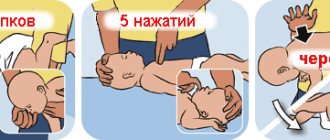What warms a young mother who dances around her baby all day? Just the thought that the child’s father would appear in the evening and save her for at least twenty minutes. But what if no one comes in the evening? Because the grandmothers’ vacation has already ended, and daddy was urgently sent, say, on a business trip? I fully experienced all the difficulties of such extreme survival when my husband worked for several months in the “two weeks at home, two weeks on a business trip” regime.
You understand the value of small breaks when someone else is looking after the child only if you lose them. Even a short time allotted to you to be alone, without feeling guilty, is a quick recharge of your batteries for subsequent achievements in the field of motherhood. Therefore, perhaps the most difficult thing when you are left alone with a baby is the complete inability to relax and the feeling of being “on duty in the universe,” which does not leave you even in your sleep. Everything else is a matter of establishing a routine and optimizing everyday life. I'm not talking about the situation when a mother raises a baby alone. Although in this case some tips may be useful.
Mother's life support issues
You can carry a crying baby around the house for hours, being, as they say, “in shorts and a sling” - unwashed and hungry, if in the evening you have the opportunity to eat and clean up. But in a “home alone” situation you will have to change tactics. The inability to take a shower, go, sorry, to the toilet and eat at least a couple of times a day - all this greatly unsettles you and deprives you of physical and moral strength. Therefore, the drama “I haven’t sat down all day because the baby didn’t agree to stay in the crib for a minute” is not for you. You have no one to count on in the near future. This means that first of all you need to take care of yourself to function normally.
I’ll say something impossible for most anxious mothers: nothing will happen to the baby in two minutes if the crib is in a safe place . And you will have time to brush your teeth and feel like a human being. If you need to satisfy your bodily needs, just do it . If possible, during children's sleep. Otherwise, place the baby comfortably and safely in a place where he definitely cannot fall. If you don’t want to leave your child alone in the room, take it with you to the bathroom, carefully fastening it in a baby lounger or car seat. Play peek-a-boo with him! from behind the curtain. Agree, a clean head is worth washing it in such an idiotic way.
In addition, you need to eat regularly. Most likely, you won’t have time to prepare pickles (if you have a baby who sleeps twice a day for three hours, and then all night, this article is definitely not for you). Stock your freezer with foods you can prepare in minutes. By the way, such a NC can be done even before giving birth; these supplies are a great help. Immediately cut the meat and fish into portions. Make cutlets and meatballs from the minced meat. Keep a few bags of frozen vegetables in stock - they make quite a “quick soup” and a “quick side dish.” Buy pasta, sugar, cereals and the like in advance so that there is enough for the entire period of “single motherhood”. If you have the time/desire to peel potatoes sometimes, have a few kilos in reserve. A few packs of shelf-stable milk will be appropriate if you drink milk. In a pinch, a few packs of crispbread will come in handy. The point is, if possible, not to need to make major food purchases until helpers arrive with bags full of food.
To answer the question familiar to all novice mothers, “How can I find a minute to eat?” there is a simple answer. You must make a strong-willed decision and just eat regularly, regardless of the baby's mood . It is almost useless to hope that the baby will be imbued with it, understand it and give it an opportunity (if you already have a baby who requires constant attention). And you also need to sleep more or less normally, because there is no one to take your watch at night. Therefore, the choice between the points “perform an everyday feat” and “sleep for an hour” is better made in favor of sleep.
Not in my arms, but next to my mother
A sling and its varieties, baby carriers, a car seat-cradle, a playpen, high chairs for feeding from birth, baby rocking chairs, and educational mats can greatly make the life of a mother or any other loved one who stays with the baby easier.
All these devices, except for developmental mats, can be used only after consultation with a pediatrician and orthopedist.
From the point of view of child psychology, the most important thing is to find a form of spending time together when the baby will see and/or feel his mother, and the mother will be able to do some useful or interesting things. So it doesn’t matter which devices will provide convenience for both mother and baby. As long as it is safe for the child and suitable for adults.
How to make life easier for a young mother?
The washing machine is your best friend during this time. Take care of her and love her like a family member. It saves you energy and time while doing its job well. Moreover: in principle, she does all the necessary work to care for baby things. I am hinting that it is not necessary to iron diapers and baby vests after washing . It’s clear that you “can’t imagine how you can sleep on unironed sheets,” and “how can you put rompers on a baby without ironing them?” But just in case, I’ll let you know: in the maternity hospital, your newborn was washed with water straight from the tap! And he survived. So the benefits of “sterilizing” diapers with an iron are questionable. Think about the fact that germs will again settle on children's clothes just a couple of minutes after ironing. If you don't have time during the day to maintain your previous high ironing standards, then no iron is worth choosing over an hour or two of sleep.
As for order in the house, it is better to maintain it constantly if possible - nothing has a worse effect on thoughts in the head than chaos around. I'm not even talking about the dangers of dust for babies and their mothers.
It is ideal if the child agrees to sleep on the balcony during the day (unless, of course, your balcony faces a busy highway). Children usually sleep sounder and better outside. And you get invaluable time for household chores. If, instead of snoring for hours in two holes, the child draws you an Indian folk hut “figvam”, you will have to be cunning.
You can gain 15 minutes by getting your baby interested in a mobile phone. About the same amount - if the child likes the educational rug. You will have some time while your child watches you from a lounge chair or car seat. And talk, talk! While you are chatting, he is calmer. Meanwhile, you will cut the potatoes for the soup.
In case of particularly cynical infant rebellion, wrap the baby in a sling or put on a kangaroo . You can vacuum, wash floors and dishes, with some skill, cook food and even eat it (be careful with hot things). Most likely, the little rebel will fall asleep faster than you finish your business.
A sling or kangaroo will save you in many situations when there is no one to help and you need free hands. This is a good alternative to a stroller on the street if you yourself cannot take the child’s vehicle out of the house or drag it onto the porch of a store. Contrary to expectations, carrying children in the first months of life is quite a task for the average mother.
How to plan your day correctly?
Mothers who manage to do everything often share their secrets with other women; we’ll tell you everything about planning:
- firstly, it is recommended to note in your diary (on a piece of paper, in a mobile application) all the important things that need to be done today, for example, “go to the supermarket”, “take your baby for vaccination”, etc. You can use colored markers, for example, red to indicate the most important thing, green to indicate what is important, and orange to indicate what can be put off until tomorrow;
- secondly, it is important to prepare the menu for the day in advance so that you know in advance what products to buy. Ideally, this should be done a week in advance. If you go to the supermarket with such a list, the time it takes to buy everything you need will be reduced significantly;
- thirdly, it is important to warn all relatives and friends that coming to the house without prior approval is no longer worth it. Even the nicest guests can disrupt the routine and deprive mom of the opportunity to do what she needs. But if the visit is agreed upon, it is quite possible to arrange your affairs around his time.
And one more thing: you shouldn’t pass by things that will be needed not today, but in the near future. For example: mom found an interesting recipe, a game with her child, or something else. It’s great if useful information is written down on a piece of paper and left in a visible place (on the refrigerator) - you won’t have to waste time searching for it later.
So I went to the store for some bread
Try to time everything you need to do “in the outside world” to coincide with your walk . Prepare trash for disposal, make a shopping list. The temptation to run to the store (well, here it is, on the first floor of our house) while the child is sleeping is very great. Rest assured: the little tyrant is good at pretending. It has a built-in device that perfectly determines your location. He will sleep peacefully while you at home “washed all the dishes, wiped the floors everywhere, planted forty rose bushes among the flowers.” As soon as you run out for a minute with all conceivable precautions - to a trash can or kiosk, the baby will immediately know about it. Having tried a couple of times with trembling hands to insert the key into the keyhole under the wild roar of my sweet baby coming from the apartment, I gave up the practice of “running out for some bread.”
It is imperative to go outside. Not only for walking the child, but also for you. A change of scenery, fresh air and movement are necessary for you to gain peace of mind. You’ll talk to other young mothers, complain that “your guy performed all night again yesterday”... You’ll see, you’ll feel better. Or maybe you’ll be lucky and you’ll find someone to team up with to take turns looking after the children and going shopping and to the children’s clinic. It's always more fun in company. Again, there is someone to talk to not only at the “Agu, Lyuli, Guli” level.
Needless to say, being locked within four walls alone with a baby is not so easy, unless you come across a “gift option” that only eats and sleeps. Otherwise, you will be saved by a routine and a pragmatic approach to the situation, coupled with a dose of self-compassion . If not you, then who will regret it? The main thing is to remember that there is light at the end of the tunnel. The child's father will return, grandmothers and other relatives will arrive. At worst, the child will grow up, learn to talk, sleep better at night and cry less. Well, they say that all children sooner or later begin to sleep at night. There is, you know, such a theory...
Sometimes I also don’t have time to do anything with my child!
And finally: I also have ups and downs. Sometimes it seems that again I don’t have time to do anything - my daughter is capricious and everything falls out of hand... This is especially noticeable in moments of crisis in a child. Oh, how I grumble at this! But it's okay. You need to give yourself time, perhaps forget about some things and just be with your child. Ask for more help from your husband and relatives, if you have them. We are not robots, and we cannot always give 100%. You definitely need to be lazy from time to time! Then, after a couple of hours or days, remember that no one will do anything except us. And that this is our life in which we choose: to be a victim and a whiner or to pull ourselves together and manage the most important things.
I really hope that my article will inspire you to properly organize your day and get everything done with a small child! Leave your comments and please share the article on social networks - this way you will help young mothers stop being discouraged and take life into their own hands. Let's unite and support each other!
To see you again, subscribe to my blog 
Your Blogomomochka - Ekaterina Ulyanova
+2
0
Ekaterina Ulyanova
Mother of two wonderful daughters and author of the blog blogomamochka.ru
Mistake No. 3. Keeping the temperature low
Parents believe that the normal, correct temperature is 36.6. But in children it can be 37, or even 37.5 (up to a year). Age, gender, time of day, activity level, emotional stress, the amount of clothing the child is wearing, environmental conditions, as well as parts of the body where the temperature is measured - all these factors determine how much the child will be “heated”.
Photo: blog.medi-market.be
In children over two years old, the temperature may fluctuate depending on the time of day: in the morning it is lower, and in the evening it rises slightly. Children are often wrapped up, this can also cause an increase in body temperature.
A temperature of 38 degrees or higher is considered elevated. Doctors do not have a uniform approach to the question of at what temperature (38 or 39 degrees) children need antipyretic medications. If a child plays, eats well and generally feels comfortable, and has no concomitant diseases, then doctors do not recommend lowering the temperature to 39 degrees.
But it also happens that children do not tolerate a temperature of 38 degrees well, then there is no need to wait for a further increase in order to give antipyretic medicine.
Do not wipe your child with vinegar or alcohol at high temperatures.
Irina Morzhanova recommends not wrapping the child up, giving him fluids more often, ventilating the apartment, and monitoring the symptoms associated with the temperature. If the child’s well-being allows, then you can rinse him in the shower.
Crisis 3 years
Learn to argue with your child correctly
Situation: a cute and sweet baby has turned into a monster who throws a scandal at any occasion. He can protest for half an hour or an hour and does not respond to any persuasion. For any reason or without: no, no, no. Even if you see that he actually wants to sleep or drink.
What is really happening: this is a crisis of negativism. Yes, it’s hard for parents, but for a child this period of life is generally nightmare. His whole life before that was built on the fact that his parents came when called and satisfied his needs. And now the child is surprised to discover that he and his parents sometimes want different things, and he gets scared.
At three years old, a child can do a lot of things. And he begins to become, so to speak, dizzy with success. It seems to him that he is capable of absolutely anything. But critical thinking has not yet been developed; he does not see the complexity of the situation and all the circumstances. Unlike parents, who have already gained some experience and cannot allow their child to do whatever he wants.
What not to do: call “the evil guy who will take you away” or threaten to leave you alone. The child seriously believes the words of the parent. For him, being left alone is tantamount to a death sentence. There is also no need to hit the child. This is how the parent triggers the following reaction in an aggressive way, but the baby doesn’t learn anything.
And if you scare the child even more, the earlier program will turn on: stay in place and scream. With each new cry, the child will fall deeper and deeper into stress. With every blow and shout, the image of the parent as a source of protection and care will be destroyed.
What is better to do: remember that the child does not do anything out of spite. It’s still very difficult for him to do it out of spite. To do this, you need to at least imagine how the victim perceives certain actions. That is, look at the situation from the other person’s point of view and think through a strategy. A child’s brain will only be capable of this by the age of six or seven.
During a crisis of negativism, you need to argue with your child. Just do this not by shouting, but by building a competent discussion. This is how the child learns to conflict and defend his opinion. At first, the baby will be shocked and protest that not everyone wants the same thing as him. But over time, he will learn to live in a world in which his will is sometimes limited by the will of other people.
If you punish a child for any attempt to protest, or vice versa - never argue with him, he will not be able to master a variety of strategies for responding to stress. There will only be one of two options left: capitulation or the “stubborn sheep” position.
Mom's helpers
Helpers are great at helping mommy organize her life and free up time for herself; these can be people or modern gadgets.
Relatives, housekeeper and nanny
Not every family can afford to hire staff to help with the child and housework. But if the budget allows it, then you need to take advantage of it. It is not necessary to invite full-time assistants, it is expensive. But a few hours every day or the whole day 1-2 times a week will give mom the opportunity to redo a bunch of things, take care of herself or work.
It is good to involve dad, grandparents and other relatives who show a desire to help with the child. This will save both the family budget and mother’s nerves. After all, leaving a baby with a loved one is calmer than with a stranger, even a professional.
Before leaving your baby with someone, you need to leave clear instructions on the daily routine, feedings, activities, etc. This will allow you not to disrupt your usual way of life, and the baby will feel more comfortable and calm in the new company
Modern gadgets to make mommy's life easier
There are a number of things that will make a mother’s life much easier and allow her to do something else besides caring for her baby.
Sling or ergo-backpack
Great gadget for moms! Many children behave calmly only in their mother’s arms. A sling will help free your hands, while the baby will be in close proximity. Using this device, you can cook food, do cleaning, go to the store, meet friends, or go to any state. institution, for example, for processing benefits. If you wish, you can even breastfeed your baby in a public place. A sling and special clothing for nursing will help you do this unnoticed by others.
Chaise lounge, swing, educational mat
These gadgets can only help at home, but even then, don't underestimate them. As a rule, children enjoy playing and sitting in such devices - this will give mommy time to do a lot of household chores while the baby is busy.
Radio and video nanny
It is advisable to buy such a device for owners of large apartments and houses. After putting your baby to bed, you can calmly go to the kitchen or take a bath. At the same time, these modern devices will help you control the situation. If the child cries or turns over awkwardly in his sleep, mommy will immediately see and hear. The main thing is not to forget to look at the monitor or smartphone screen and listen to the radio.
Modern household appliances
It is better to equip your home with modern household appliances that save a lot of time before the baby is born, in order to fully master its capabilities. Washing machine, dishwasher, multicooker, washing vacuum cleaner, blender, microwave oven, etc. All these devices will help you do household chores quickly, efficiently and efficiently.
Mistake No. 2. Introduce/not introduce complementary foods
15-20 years ago, doctors recommended starting complementary feeding for children with apple or pear juice. Today, pediatricians are unanimous in their opinion: you cannot start complementary feeding with juices, since they contain a lot of sugar and acid, which is harmful to the stomach and tooth enamel. It is not recommended to give juices to children under 12 months; after a year, the amount of juice is 120-180 ml per day, after 4 years – up to 250 ml.
But the best option for drinking is water!
Where and when to start complementary feeding? Most world experts believe that the first course of complementary feeding can be anything: cereals, vegetables, meat or fruits. Russian pediatricians recommend introducing vegetables first, then cereals, and then dairy products and meat. Research shows that there is no fundamental difference in nutritional status if the sequence of food introductions is changed at 6-8 months of age.
Photo: cookingrecipes.biz
- If a child is breastfed, has enough mother's milk, and is gaining weight, then complementary foods can be introduced at 6 months.
- If the child is bottle-fed, then we can talk about complementary feeding from 4-5 months.
For example, if a child is not gaining weight well, then cereals are introduced first, and if the child has anemia (iron deficiency), then vegetables. Complementary foods (porridge, vegetable puree, fermented milk products) replace feeding, so the child is first offered complementary foods, and then mother's milk or formula from a bottle.
The point of any complementary feeding is not to feed the child at any cost (as parents often do, trying to make him eat everything), but to introduce him to a variety of tastes, textures, colors, and smells. If parents have problems introducing complementary foods, then they need to consult with a pediatrician, he will help you figure out the mistakes and suggest what to change in the complementary feeding regimen.
Irina Morzhanova draws attention to a common mistake parents make when introducing cottage cheese into a child’s diet:
“Most children eat cottage cheese well, parents are happy about it, they are ready to give them a pack, two at one meal, but this is wrong. Cottage cheese is introduced with the third complementary foods, from 8 months. Cottage cheese does not replace feeding! Babies at 8 months need 20 g of cottage cheese, per year - 50 g (only 2 tablespoons), but not 150 g (a pack of cottage cheese). Don’t forget to also add kefir, yogurt, and acidophilus to your child’s diet.
What you should never do
Representatives of the older generation grumble that you tie the baby too closely to you, that you can leave him to scream, as pediatricians recommended some thirty years ago. Are you in doubt? And rightly so! This is a harmful, outdated misconception. If you follow this recommendation, you can cause neurosis for both the mother and the child. Even if the baby learns to cry less, he will become much more unhappy, as he will feel rejected.
Remember: a baby never cries without a good reason! Some children have an increased need for attention and contact with adults, so they cry more than their peers. They simply cannot be left alone.
Trying to re-educate such a child, to accustom him to loneliness, is a bad decision. This does not mean that mom cannot go to the toilet or go to the next room for a book. Trying to provide him with warm emotional and physical contact to the maximum extent possible - that’s what we’re talking about.











